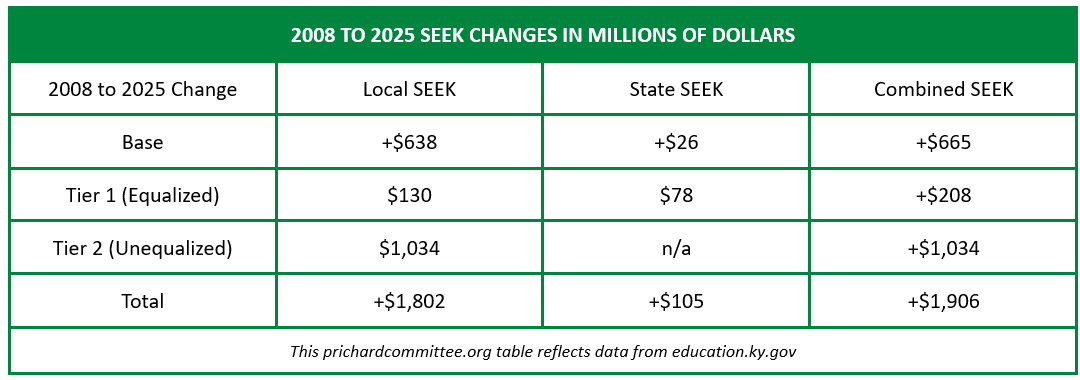In charter school operation, the authorizer is a government body that approves an application to form a charter school, enters a contract with the school’s board, provides oversight, and decides on renewal or closure of the school.
Options and Appeals
Kentucky law allows multiple authorizers for Kentucky charter schools:
- The local school board in the district where the school will be located.
- A collaborative of local boards formed to set up a regional charter school.
- The Lexington/Fayette County mayor and the Louisville/Jefferson County chief executive
- Either the trustees of Northern Kentucky University or a “collective” appointed by school boards in that region (see the Pilot Project discussion below for more detail.)
The Kentucky Board of Education will hear appeals of rejected applications. That Board can change the outcome based on whether the application met the legal requirements and whether the denial was "contrary to the best interest of the students or community."
Pilot Program
In 2022, House Bill 9 mandated a “Kentucky Public Charter School Pilot Project” that requires the approval of two “urban academy” charter schools, one in Jefferson County and one in Kenton or Campbell. As urban academies, each will give admissions preference to students who live near the school. The authorizers for each school will report each year to two legislative committees on how it is overseeing the required charter school. In addition, the Office of Education Accountability will review the school’s performance each year and report to the same two committees.For the Jefferson County charter school, the Jefferson County school board is directed to authorize a charter school by July 1, 2023. The Jefferson board will face an added challenge in its authorization and oversight work: 2022’s House Bill 1 only allows that board to meet once every eight weeks.For the Northern Kentucky charter school, there are two authorizer possibilities:
- Through January 1, 2023, the Northern Kentucky University Board of Regents can choose to be the authorizer by adopting a resolution. The board will then be required to authorize a charter school by July 1, 2023.
- On July 1, 2023, if NKU’s board has not become an authorizer, a “collective” will be created, with two members from the local boards in each of the nine school districts in Kenton and Campbell counties. The collective will then be required to authorize a charter school by July 1, 2024.
Ongoing Responsibilities
The authorizer’s work does not end with approving an application.Contract drafting will be an important legal challenge. Oversight to see if performance goals and operating requirements are being met will come after that. Decisions about renewal based on those issues will also be an important responsibility. If there are health and safety concerns, action may be needed to close the school. If there are other substantial weaknesses that are not legal grounds for closure, the authorizer will be responsible for raising those concerns with the charter school and perhaps for looking into other remedies.Authorizing and oversight looks like a moderately heavy lift. A school board authorizer at least starts out with a staff that knows education law, finance, and operations. If a mayor or a university board wants to take on the role, that choice seems likely to require some new staff or a commitment of time from existing staff as well as from the officials themselves. And if a collective of school board members must form to authorize the northern Kentucky pilot, it is not clear how they can get staff or logistical support for the initial authorizing decision. To get a further sense of the scale of effort involved in authorizing, one helpful resource may be the “Principles & Standards for Quality Charter School Authorizing” offered by the National Association of Charter School Authorizers. Once the authorizer contracts for a charter school, it will be able to retain 3% of the charter school’s revenue. As a loose estimate, think of that being about $300 per student, available to cover part of the cost of this oversight work.
Legal Sources: KRS 160.1590 defines the authorizers. KRS 160.1594 sets authorizing process, and KRS 160.1595 provides for appeals, with some modifications made by 2022's House Bill 9. Section 11 of House Bill 9 sets the rules for the pilot program.
Series Links:
Charter schools: taking on the questions (Introduction)
2. What student results are charter schools expected to deliver?
3. Which school laws do charter schools have to follow?
4. How can students be admitted to charter schools?
5. Who can authorize charter schools?
6. Who can apply to start a charter school?
7. How can charter schools be closed if they do not deliver?












